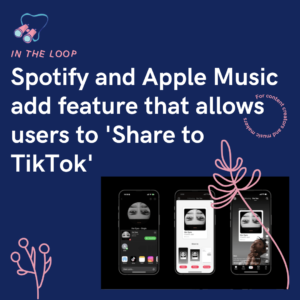Don’t waste your time running an ineffective and disorganised marketing campaign. Learn how to easily plan and prepare a campaign that’ll exceed your expectations.
Marketing campaigns are a tough nut to crack; there are a lot of factors and influences that can go into the planning process. However if you understand the fundamental aspects behind certain decisions and how you’re going to achieve your goals, it’s a breeze.
We discussed exactly what marketing campaigns in our earlier article Marketing 101: What is a Marketing Campaign?. In case you missed it, here it is in a nutshell:
 What is a marketing campaign?
What is a marketing campaign?
A marketing campaign is an action, or a set of actions that are undertaken to achieve a certain outcome, such as increasing sales, growing a social following or even just increasing brand awareness.
When it comes to campaigns, one size doesn’t fit all. They can be complicated, simple, long, short and different greatly depending on multiple factors and changeable components, such as:
- Goals & outcomes
- Campaign format(s)
- Audience
- Budget
- Time
- Brand personality
 How do you plan a marketing campaign?
How do you plan a marketing campaign?
Planning a marketing campaign can take weeks, months or years for some big name brands. We’ve summed up the fundamentals aspects of campaign planning you can easily understand how to make your own.
 1. What are your campaign goals?
1. What are your campaign goals?
What is it you’re wanting to achieve with your campaign? If you’re a fledgling brand or business, try and think of some broader goals that will be easy to plan and prepare for. Common goals include:
- Growing your social following on a specific platform
- Boosting sales of a product
- Advertising an upcoming event or gig
- Boosting content engagement
Remember to keep these goals achievable and realistic. As much as DIY brands want to grow their social following by millions of followers, it probably won’t happen.
 2. How will you measure your campaign success?
2. How will you measure your campaign success?
Think about how you’ll measure your success in accordance to your goals. If your goal is:
- Growing your social following, you can measure your success with follower numbers.
- Boosting sales, you can measure your success with revenue and sales.
- Advertising an upcoming event, you can measure your success with views/ticket sales.
- Boosting content engagement, you can measure success using likes/shares/comments/interactions.
 3. Who is your audience?
3. Who is your audience?
Your audience should always be in the back of your mind when planning campaigns, as they are the people on the receiving end of your campaign.
Put yourself in your target audience’s shoes and ask yourself:
- What kinds of content will appeal to my audience?
- What actions are my audience likely to undertake?
- What channels are my audience using? (e.g. social media, television, radio etc).
 4. What forms will your campaign take?
4. What forms will your campaign take?
Now you can think about what forms your campaign will take, again keeping your goals and audience in mind. Choose a medium that your audience will understand, easily access and will likely engage with. Also, will you rely on a singular form of content or employ multiple types in your campaign? It’s entirely up to you.
Different forms of media include standard things like images, videos, adverts, posters and more. They can also take the form of other, slightly newer formats such as filters, competitions, giveaways and many others.
 5. How will you publish your campaign?
5. How will you publish your campaign?
What channels will you choose to promote your campaign on? Will you stick with just social media or your own website, or will you branch out to radio, blogs, magazines etc?
You can also go back to the roots of DIY and make a zine, or hand out flyers.
It’s also worth thinking how long you want this campaign to last. If your goal is centred around quick results, you’ll want to run a shorter campaign, and vice versa.
 6. What actions will your campaign contain so as to reach your goals?
6. What actions will your campaign contain so as to reach your goals?
Make sure that what you’re telling your audience to do in your campaign is in-keeping with your goals.
If the goal of your campaign is to increase sales, you’re much better off creating a campaign that promotes new products/exclusive offers, rather than a campaign encouraging people to share your tweet.
Once you’ve sat down and gone through all of these questions, you’re ready to start making a solid plan of action. Write a timeline and everything you need to prep for each element so everything is nice and organised.
Now you can get stuck in building resources and sourcing tools to complete your campaign with. You can use all the tools available at PUSH.fm, along with a multitude of others (here’s a guide to get you started).





